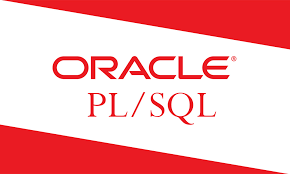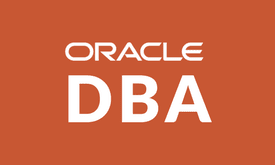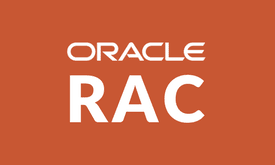This course begins with a refresher of concepts associated with identity management, identity administration and Oracle PLSQL 11g R2. Through hands-on training, you'll deep dive into the following concepts.
My training benefits
- My batch sizes are generally very small size 5-7 members OR 1 to 1 also, so students receive direct, hands-on training from us.
- 100% practical training only. It is not a slide show training program / theory class program. At the end of this class, definitely you will refer your colleagues / friends / relatives for my training.
- Conducting regularly online- training for US peoples in all time zones (PST,CST,EST,HST,MST)
- Installation of Softwares in your desktop / laptop will be done.
- Will be provided self evaluation testing software, exam simulator, dumps & books with this training.
- Continuous support is provided for any of your on-site problems. Placement assistance will be provided and you will be recommended to some of IT development firms.
For Corporate Training
- I will be more comfortable, if you could restrict the group not to exceed 20 persons.
- Training hours will be 40 Hrs/paper in view of 20 participants.
- Hardware for the required training should be provided by you, like Hall, Projector, and Furniture.
- I will be bringing my laptop for training purpose, which should be allowed in to your premises.
Prerequisties
About Oracle Trainer
- Dinesh work as an Oracle Consultant & Instructor, He has over 15+ years of Oracle Implementation experience and recognized expert in Oracle SQL and PLSQL technologies, advanced analytics and Oracle data mining.
Mr. Dinesh specializes in Oracle Discoverer, Oracle OLAP and Oracle Data Warehouse Builder.
- He is also been as Senior Instructor of Oracle University and provided 200+ Corporate trainings, trained 25000+ freshers and corporate & fresher professionals.
He is an Oracle Certified Master (OCM). Expertised with RAC, Data Guard, ASM, Oracle Exadata, RMAN, Oracle Performance Tuning, Streams, Security & more.
He is among few of the Oracle Certified Master (OCM's) in the World to achieve below certifications in his area of research.
- Oracle Certified Professional (OCP) 9i
- Oracle Certified Professional (OCP) 10g
- Oracle Certified Professional (OCP) 11g
- Oracle 10g Certified RAC Expert
- Oracle 10g Certified Master (OCM)
- Oracle 11g Exadata Certified Implementation Specialist
Conducting regularly online- training for US peoples in all time zones (PST,CST,EST,HST,MST) My training is 100% Money Back Guarantee (Tuition fee) for Passing Online Examination with cent percent and ready to go live with production system immediately. If my training does not satisfy you at any point of time, even during the training period, you need not pay the tuition fee.
100% practical training only. It is not a slide show training program / theory class program. At the end of this class, definitely you will refer your colleagues / friends / relatives for my training.
Course Curriculum
Curriculum
Oracle PLSQL Training Course Content
Introduction
- Course Objectives
- Course Agenda
- Describe the Human Resources (HR) Schema
- PL/SQL development environments available in this course
- Introduction to SQL Developer
Introduction to PL/SQL
- Overview of PL/SQL
- Identify the benefits of PL/SQL Subprograms
- Overview of the types of PL/SQL blocks
- Create a Simple Anonymous Block
- How to generate output from a PL/SQL Block?
Declare PL/SQL Identifiers
- List the different Types of Identifiers in a PL/SQL subprogram
- Usage of the Declarative Section to Define Identifiers
- Use variables to store data
- Identify Scalar Data Types
- The %TYPE Attribute
- What are Bind Variables?
- Sequences in PL/SQL Expressions
Write Executable Statements
- Describe Basic PL/SQL Block Syntax Guidelines
- Learn to Comment the Code
- Deployment of SQL Functions in PL/SQL
- How to convert Data Types?
- Describe Nested Blocks
- Identify the Operators in PL/SQL
Interaction with the Oracle Server
- Invoke SELECT Statements in PL/SQL
- Retrieve Data in PL/SQL
- SQL Cursor concept
- Avoid Errors by using Naming Conventions when using Retrieval and DML Statements
- Data Manipulation in the Server using PL/SQL
- Understand the SQL Cursor concept
- Use SQL Cursor Attributes to Obtain Feedback on DML
- Save and Discard Transactions
Control Structures
- Conditional processing using IF Statements
- Conditional processing using CASE Statements
- Describe simple Loop Statement
- Describe While Loop Statement
- Describe For Loop Statement
- Use the Continue Statement
Composite Data Types
- Use PL/SQL Records
- The %ROWTYPE Attribute
- Insert and Update with PL/SQL Records
- INDEX BY Tables
- Examine INDEX BY Table Methods
- Use INDEX BY Table of Records
Explicit Cursors
- What are Explicit Cursors?
- Declare the Cursor
- Open the Cursor
- Fetch data from the Cursor
- Close the Cursor
- Cursor FOR loop
- The %NOTFOUND and %ROWCOUNT Attributes
- Describe the FOR UPDATE Clause and WHERE CURRENT Clause
Exception Handling
- Understand Exceptions
- Handle Exceptions with PL/SQL
- Trap Predefined Oracle Server Errors
- Trap Non-Predefined Oracle Server Errors
- Trap User-Defined Exceptions
- Propagate Exceptions
- RAISE_APPLICATION_ERROR Procedure
Stored Procedures
- Create a Modularized and Layered Subprogram Design
- Modularize Development With PL/SQL Blocks
- Understand the PL/SQL Execution Environment
- List the benefits of using PL/SQL Subprograms
- List the differences between Anonymous Blocks and Subprograms
- Create, Call, and Remove Stored Procedures
- Implement Procedures Parameters and Parameters Modes
- View Procedure Information
Stored Functions and Debugging Subprograms
- Create, Call, and Remove a Stored Function
- Identify the advantages of using Stored Functions
- Identify the steps to create a stored function
- Invoke User-Defined Functions in SQL Statements
- Restrictions when calling Functions
- Control side effects when calling Functions
- View Functions Information
- How to debug Functions and Procedures?
Packages
- Listing the advantages of Packages
- Describe Packages
- What are the components of a Package?
- Develop a Package
- How to enable visibility of a Package’s Components?
- Create the Package Specification and Body using the SQL CREATE Statement and SQL Developer
- Invoke the Package Constructs
- View the PL/SQL Source Code using the Data Dictionary
Deploying Packages
- Overloading Subprograms in PL/SQL
- Use the STANDARD Package
- Use Forward Declarations to solve Illegal Procedure Reference
- Implement Package Functions in SQL and Restrictions
- Persistent State of Packages
- Persistent State of a Package Cursor
- Control side effects of PL/SQL Subprograms
- Invoke PL/SQL Tables of Records in Packages
Implement Oracle-Supplied Packages in Application Development
- What are Oracle-Supplied Packages?
- Examples of some of the Oracle-Supplied Packages
- How does the DBMS_OUTPUT Package work?
- Use the UTL_FILE Package to Interact with Operating System Files
- Invoke the UTL_MAIL Package
- Write UTL_MAIL Subprograms
Dynamic SQL
- The Execution Flow of SQL
- What is Dynamic SQL?
- Declare Cursor Variables
- Dynamically Executing a PL/SQL Block
- Configure Native Dynamic SQL to Compile PL/SQL Code
- How to invoke DBMS_SQL Package?
- Implement DBMS_SQL with a Parameterized DML Statement
- Dynamic SQL Functional Completeness
Design Considerations for PL/SQL Code
- Standardize Constants and Exceptions
- Understand Local Subprograms
- Write Autonomous Transactions
- Implement the NOCOPY Compiler Hint
- Invoke the PARALLEL_ENABLE Hint
- The Cross-Session PL/SQL Function Result Cache
- The DETERMINISTIC Clause with Functions
- Usage of Bulk Binding to Improve Performance
Triggers
- Describe Triggers
- Identify the Trigger Event Types and Body
- Business Application Scenarios for Implementing Triggers
- Create DML Triggers using the CREATE TRIGGER Statement and SQL Developer
- Identify the Trigger Event Types, Body, and Firing (Timing)
- Differences between Statement Level Triggers and Row Level Triggers
- Create Instead of and Disabled Triggers
- How to Manage, Test and Remove Triggers?
Creating Compound, DDL, and Event Database Triggers
- What are Compound Triggers?
- Identify the Timing-Point Sections of a Table Compound Trigger
- Understand the Compound Trigger Structure for Tables and Views
- Implement a Compound Trigger to Resolve the Mutating Table Error
- Comparison of Database Triggers to Stored Procedures
- Create Triggers on DDL Statements
- Create Database-Event and System-Events Triggers
- System Privileges Required to Manage Triggers
PL/SQL Compiler
- What is the PL/SQL Compiler?
- Describe the Initialization Parameters for PL/SQL Compilation
- List the new PL/SQL Compile Time Warnings
- Overview of PL/SQL Compile Time Warnings for Subprograms
- List the benefits of Compiler Warnings
- List the PL/SQL Compile Time Warning Messages Categories
- Setting the Warning Messages Levels: Using SQL Developer, PLSQL_WARNINGS Initialization Parameter, and the DBMS_WARNING Package Subprograms
- View Compiler Warnings: Using SQL Developer, SQL*Plus, or the Data Dictionary Views
Manage PL/SQL Code
- What Is Conditional Compilation?
- Implement Selection Directives
- Invoke Predefined and User-Defined Inquiry Directives
- The PLSQL_CCFLAGS Parameter and the Inquiry Directive
- Conditional Compilation Error Directives to Raise User-Defined Errors
- The DBMS_DB_VERSION Package
- Write DBMS_PREPROCESSOR Procedures to Print or Retrieve Source Text
- Obfuscation and Wrapping PL/SQL Code
Manage Dependencies
- Overview of Schema Object Dependencies
- Query Direct Object Dependencies using the USER_DEPENDENCIES View
- Query an Object’s Status
- Invalidation of Dependent Objects
- Display the Direct and Indirect Dependencies
- Fine-Grained Dependency Management in Oracle Database 11g
- Understand Remote Dependencies
- Recompile a PL/SQL Program Unit
Oracle APPS technical Training
Oracle APPS Technical training with Greens Technologys, Chennai. will give complete coverage which includes all the basic prerequisites required to develop an oracle form and host it on the web. This covers the essential AOL (Application Object Library) Concepts that an developer is expected to know and make use while developing the forms. In a nutshell, the course will teach you all the prerequisites for AOL, devloping a new form, Customize a existing form, Regsitration of tables and AOL objects, flexfield concepts, personalization and Form libraries.
Oracle workflow Training
Oracle workflow has gained more importance in validating business process and runs as a separate application. At Greens, we give complete training which will familiarize you of all the workflow concepts and Workflow elements. At the end of the day, developers will understand the workflow concepts, configure and uredevelop a new workflow, customize an existing workflow, set user preferences and run an workflow from an user application.
Oracle Certified Associate (OCA)
The Oracle Certification Program begins with the Associate level, which recognizes achievement in mastering introductory Oracle skills. The functionality of OCA is to act as a junior team member working with database administrators or application developers. In other the OCA certification lays the foundation for their role of Web administrators, database administrators and developers in future. The OCA certification is recognized widely and employers would be assured that OCA’s have knowledge of important database administration tasks and an understanding of the Oracle database architecture and how its components work and interact.
Oracle Certified Professional (OCP)
The Oracle Certified Professional candidates have proven skills for managing a large scale database or developing robust applications that are deployed enterprise-wide. To receive this Certification you must attend an on-line or in-class training course at the Oracle University and pass one Intermediate level Exam. To obtain an OCP, one should clear the OCA program.
Oracle Certified Master
The Oracle Certified Master (OCM) credential is the most advanced Database Administrator certification and the highest level in the Oracle Certification Program. To obtain the OCM you first need to acquire the Oracle Certified Associate (OCA) and Oracle Certified Professional (OCP) credentials. A person who gets this certificate would be a senior member of IT departments and would be responsible for handling critical database systems and application.





